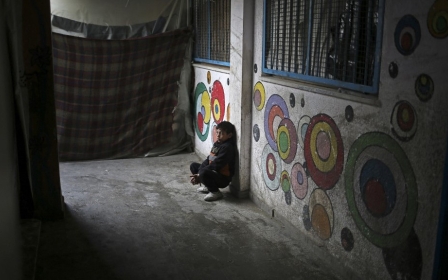Colonna report: Israel has not provided any evidence of Unrwa staff link to Hamas

Israeli authorities have not provided "any supporting evidence" to back up allegations that United Nations agency for Palestinian refugees employees are members of groups that attacked Israel on 7 October, a review led by the former French foreign minister Catherine Colonna has said.
The Colonna report, which was commissioned by the UN to look at Unrwa's operations and policies in the wake of Israel's allegations and released on Monday, said Israeli authorities have not responded to letters from Unrwa in March and April requesting names and evidence in order to open an investigation.
The Israeli government, according to the independent review, "has not informed Unrwa of any concrete concerns relating to Unrwa staff since 2011".
In late January, Israel accused 12 Unrwa employees of participating in the 7 October attack on Israel in which 1,200 people were killed and over 200 were taken back to Gaza as hostages.
As a result of the allegations, Unrwa terminated the contracts of 10 of the employees (two were confirmed dead) and 16 countries paused or froze their financial contributions to the agency, amounting to around 50 percent of the agency's budget for the year.
Stay informed with MEE's newsletters
Sign up to get the latest alerts, insights and analysis, starting with Turkey Unpacked
Several countries that froze their contributions, including Australia, Canada and Finland, have since lifted those suspensions, with some citing a lack of evidence.
The UK government, which froze its funding, has said it would await the findings of the report before deciding whether to restore its contribution.
A Foreign Office spokesperson told Middle East Eye after the report's publication: "Allegations that Unrwa staff were involved in the events that took place on 7 October in Israel are appalling, which is why we have taken decision action to pause funding to the organisation."
Meanwhile, in the US, Unrwa’s largest donor, Congress passed legislation last month that cuts off funding to the agency for the next year.
At the time the funding was cut, Unrwa said the decision would force the agency, the largest organisation operating in Gaza, into a dire situation with lives hanging in the balance.
In addition to its efforts in Gaza, Unrwa delivers essential services including education and healthcare to 5.9 million Palestinian refugees overall across the region, described in Colonna’s report as “indispensable”.
A UN spokesperson on Monday said UN secretary general Antonio Guterres had accepted the review's recommendations and called on "all stakeholders to actively support Unrwa as it is a lifeline for Palestine refugees in the region".
Reactions to review
Israel has been pressing for Unrwa to be disbanded. At a press conference on Monday, Colonna responded to Israeli criticism of her report by saying: “We know the Israeli government has publicly strong views on Unrwa. The vast majority of the international community doesn’t share these views".
However, she noted "really well-documented areas" where Unrwa's neutrality position was violated, including in teaching material that she said was "antisemitic".
Colonna also appeared to downplay the text in the report that said Israel had not provided evidence of its allegations, saying, “We have written... that Unrwa hasn’t received evidence by Israel, not that there is no evidence. That’s very different."
Unrwa Commissioner General Philippe Lazarini said he welcomed the findings saying the report "confirms that the agency has systems in place and that it acts to address allegations of neutrality breaches".
Lazarini said Unrwa would implement the recommendations of the report "without any delay".
Israeli Foreign Affairs Ministry spokesperson Oren Marmorstein said the report "ignores the severity of the problem, and offers cosmetic solutions that do not deal with the enormous scope of Hamas' infiltration of Unrwa".
Marmorstein called on donor countries to transfer their funding for Unrwa to other humanitarian organisations in Gaza. His comments did not touch upon the finding in the review that Israel has not presented evidence of its allegations.
Review recommendations
While the review said it had found that since 2017, Unrwa had established and updated "a significant number" of policies and procedures to ensure its neutrality, it also offered a series of recommendations.
These include the establishment of an executive board and other governance "to support the agency's strategic direction and external communication".
A working group on neutrality and integrity could be set up with host countries, including Israel, invited to participate, the review suggested.
The review also notes that while Unrwa has a “due diligence duty” to ensure neutrality through both prevention and prompt investigations of alleged breaches, host countries are responsible for policing, security and intelligence in relation to Unrwa's premises and staff.
“In particular, UNRWA does not have the permission, equipment, capacity or authority to identify people who are members of militant groups,” the review says.
“This is the responsibility of the host state. However, UNRWA has an obligation to act when made aware of such breaches of neutrality.”
Middle East Eye delivers independent and unrivalled coverage and analysis of the Middle East, North Africa and beyond. To learn more about republishing this content and the associated fees, please fill out this form. More about MEE can be found here.



.jpg.webp?itok=GIQTEvSA)

